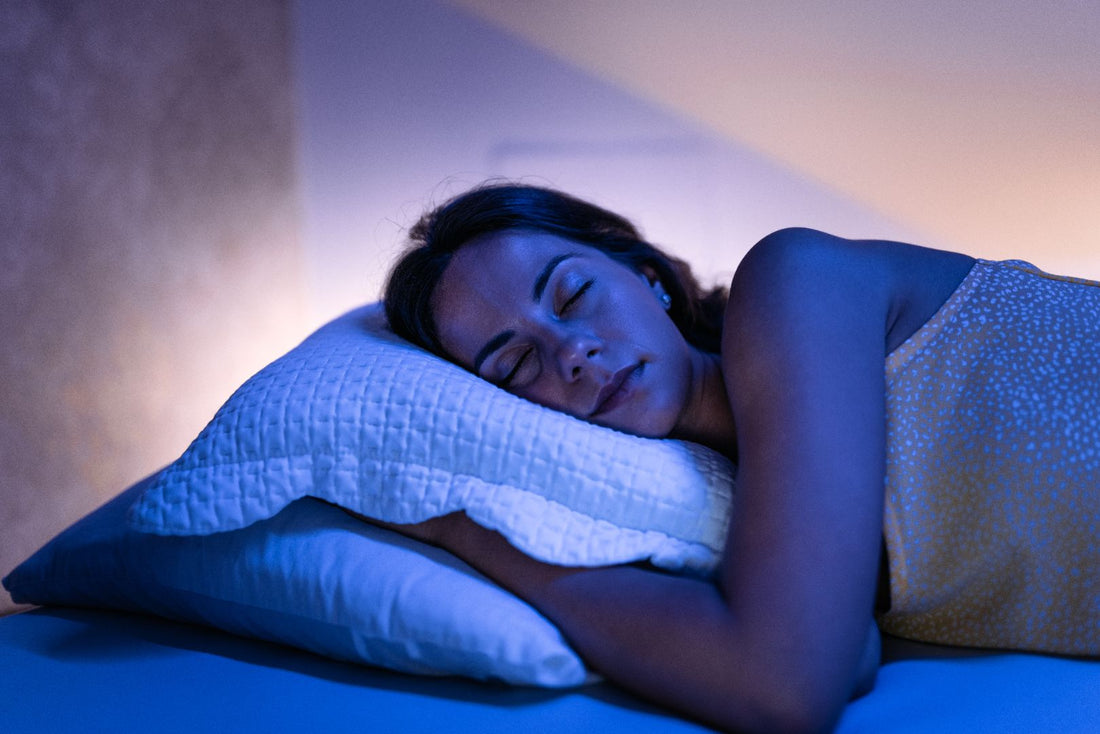Parents of more than five million children in the United States face bedwetting challenges each night. Yet this common childhood occurrence sometimes signals more than just a developmental phase - it might be your child's body warning you about diabetes.
The relationship between diabetes and nighttime accidents deserves special attention, particularly when bedwetting suddenly returns in a child who has maintained dry nights. Medical research reveals sobering statistics: 40% of people living with diabetes struggle with bladder control issues. Even more telling, 60% develop nerve complications affecting their bladder function.
Your child's nighttime struggles might feel overwhelming, but understanding this connection offers a path forward. This parent-focused guide walks you through the essential signs linking diabetes and bedwetting, helping you recognize warning signals and take appropriate action. You'll discover practical management strategies backed by pediatric research, ensuring your child receives the right support at the right time.
Early Warning Signs of Diabetes-Related Bedwetting
Parents often wonder whether their child's bedwetting signals a deeper health concern. The signs of diabetes-related bedwetting differ from typical nighttime accidents in important ways that every parent should understand.
Common Nighttime Symptoms
Your child's body leaves important clues when diabetes affects nighttime bladder control. The most telling sign? Frequent bathroom trips paired with unusual thirst. Many parents also notice their children becoming unusually tired or losing weight without explanation.
The science behind these symptoms stems from blood sugar's effect on your child's kidneys. High nighttime blood glucose levels push the kidneys into overdrive, creating more urine than usual. Even children whose blood sugar stays within normal ranges might suddenly need to use the bathroom more often.
One red flag deserves special attention: when your previously dry child starts having wet nights after staying dry for six months or longer. Doctors call this secondary nocturnal enuresis, and it often points to underlying health changes.
Differences from Regular Incontinence
Regular bedwetting touches many families - about 15% of 5-year-olds experience it. However, diabetes-related bedwetting shows distinct patterns that set it apart.
Typical childhood bedwetting usually stems from:
-
Family history
-
Small bladder capacity
-
Delayed nervous system development
-
Normal developmental patterns
Diabetes-related bedwetting brings additional signs:
-
Constant thirst throughout the day
-
Unusual tiredness
-
Changes in vision clarity
-
Sweet-smelling breath
The root cause tells different stories. While regular bedwetting reflects normal development, diabetes disrupts bladder control through nerve damage and muscle changes. Over time, your child might struggle to sense when their bladder needs emptying.
The progression also differs markedly. Regular bedwetting typically resolves with age, but diabetes-related accidents often worsen without proper blood sugar care. Diabetes can damage tiny blood vessels, affecting both bladder muscles and nerve function.
For adults managing both diabetes and weight concerns, the challenge grows more complex. Studies reveal that excess weight increases bladder control problems due to added pressure on the pelvic area. Maintaining a healthy weight becomes key to managing these symptoms successfully.
Read More: What Causes Bedwetting?
How Diabetes Affects Bladder Control
Your child's bladder function depends heavily on stable blood sugar levels. Understanding this delicate relationship helps explain why proper diabetes management plays such a crucial role in nighttime dryness.
Blood Sugar and Urination Connection
Picture your child's kidneys as sophisticated filters working tirelessly to process blood sugar. When diabetes raises these sugar levels too high, the kidneys struggle to keep up. Medical studies show that excess sugar eventually spills into urine, pulling precious water from body tissues and leading to increased urination.
Impact on Nerve Function
The story doesn't end with sugar-filled urine. Nearly half (45%) of people with diabetes experience nerve damage affecting their bladder control. This condition, which doctors call diabetic neuropathy, disrupts the vital communication between the brain and the bladder.
Your child's nerves can suffer damage through several paths:
-
Sugar molecules converting to harmful substances like sorbitol and fructose
-
Destructive free radicals building up
-
Formation of damaging protein compounds
These changes gradually weaken nerve signals, making it harder for your child to sense when their bladder needs emptying.
Effects on the Bladder Muscles
Bladder muscle changes happen in two stages. First, frequent urination from high blood sugar forces the bladder to adapt. Later, harmful substances build up, causing bladder tissue damage.
The main bladder muscle (detrusor) becomes extra sensitive because of:
-
More receptors developing on muscle surfaces
-
Muscles react more strongly to signals
Medical research paints a clear picture of how bladder function changes: 55% of patients develop an overactive bladder, 23% show weakened muscle control, and 10% lose muscle function completely. These changes often prevent complete bladder emptying, raising the risk of urinary tract infections.
When To Talk to Your Doctor
Your child's bedwetting patterns tell an important story about their health. Recognizing the right moment to seek medical help ensures proper care for both diabetes and nighttime accidents.
Key Symptoms That Need Attention
Schedule a doctor's visit if your previously dry child starts having wet nights again. Watch carefully for these warning signs:
-
Constant thirst that water doesn't satisfy
-
Weight loss, even though eating habits haven't changed
-
Changes in eyesight or trouble focusing
-
Unusual sleepiness or low energy
-
Burning or pain during bathroom visits
-
Urine appearing pink or reddish
-
Trouble with hard stools
Adult bedwetting paired with diabetes symptoms needs prompt medical attention. Look out for yeast infections or skin problems that keep coming back - these often point to blood sugar issues.
Important Health Measurements to Track
Start preparing for your doctor's visit by recording:
-
Every bathroom visit and wet night in a simple diary
-
What and when your child drinks, particularly near bedtime
-
How urgent bathroom needs feel
-
Blood sugar numbers if you check them
Your doctor might suggest these diabetes tests:
-
A1C test
-
Random blood sugar test
-
Fasting blood sugar test
Remember, untreated diabetes puts your child at risk for serious health problems, from heart issues to nerve damage. Good record-keeping helps your medical team create the right treatment plan.
Questions worth asking your doctor:
-
"How often should we check blood sugar?"
-
"What high or low sugar signs should worry us?"
-
"Which foods help or hurt?"
-
"How does exercise fit in?"
Many parents feel awkward discussing bedwetting, but doctors help families with these concerns every day. Quick action often leads to better results for both diabetes and bedwetting management.
Managing Diabetes and Bedwetting Together
Parents often feel overwhelmed managing both diabetes and bedwetting. The good news? Simple, practical strategies help tackle both challenges while keeping your child comfortable and confident.
Blood Sugar Control Strategies
Steady blood sugar levels form your strongest defense against nighttime accidents. Your child's daily routine should include regular glucose checks and proper insulin timing. Teaching children early about diabetes care builds healthy habits and helps them spot low blood sugar signs.
Today's diabetes tools make monitoring easier than ever. Smart insulin pumps paired with parent-friendly apps help you track your child's progress throughout the day.
Lifestyle Adjustments
Smart drink scheduling helps prevent wet nights. Research-backed tips show:
-
Morning hours: 40% of daily drinks
-
Afternoon: Another 40% of fluids
-
After 5 PM: Just 20% of daily drinks
Try these proven bathroom routines:
-
Visit the bathroom twice before bed - once during the bedtime routine, once right before sleep
-
Schedule bathroom breaks every 2-3 hours during the day
Some drinks upset your child's bladder more than others. Watch out for:
-
Coffee or tea
-
Fizzy drinks
-
Orange and lemon juices
-
Sports beverages
Treatment Options
Your doctor might suggest several treatments working together. Many children respond well to desmopressin, a medicine that reduces nighttime urination. Treatment usually starts with 0.2 mg taken an hour before bedtime, sometimes increasing to 0.6 mg if needed.
Stubborn symptoms might need extra help:
-
Special medicines for better bladder control
-
Newer medications targeting overactive bladders
-
Careful use of botulinum treatments in certain cases
Simple exercises strengthen bladder muscles - think of them as tiny workouts for better control. Healthy body weight also matters since extra pounds can put pressure on the bladder and cause more leaks.
Keep track of what works best for your child. Write down daily drinks, bathroom visits, and blood sugar numbers. These notes help your doctor fine-tune treatments for the best results.
Conclusion
Parents facing both diabetes and bedwetting challenges deserve reassurance - these conditions respond well to proper care and attention. Medical research shows that early recognition of this connection leads to better outcomes, especially when families work closely with their healthcare team.
Your pediatrician becomes your strongest ally when bedwetting occurs alongside diabetes symptoms. Together, you'll create a care plan that fits your child's unique needs, combining careful blood sugar monitoring with practical nighttime strategies. Studies show this team approach significantly improves success rates for managing both conditions.
Today's families have more tools than ever to tackle these challenges. Smart glucose monitors, proven medications, and simple lifestyle changes help children stay dry and healthy. While the journey might feel overwhelming at first, remember that thousands of families successfully manage these conditions every day.
Your commitment to consistent care makes the biggest difference in your child's progress. Working with your medical team, following treatment plans, and staying positive help your child build confidence while managing their health. Small steps lead to big victories - many children achieve dry nights while keeping their blood sugar stable.
Parents, tackle diabetes & bedwetting with care. Early recognition & teamwork are key. Find solutions with your pediatrician & explore Nighthawk's bedwetting alarms. Shop now!
FAQs
How does diabetes contribute to bedwetting?
Diabetes can cause bedwetting by increasing urine production due to high blood sugar levels. It also affects the body's ability to concentrate urine at night and can damage the nerves controlling bladder function, leading to frequent urination and difficulty holding urine during sleep.
Can excessive sugar intake lead to bedwetting?
While excessive sugar intake alone doesn't directly cause bedwetting, it can contribute to the problem. High sugar consumption increases thirst and fluid intake, potentially irritating the bladder and causing inflammation. In people with diabetes, high blood sugar levels can lead to increased urination, including at night.
What are effective strategies to manage diabetes-related bedwetting?
To manage diabetes-related bedwetting, focus on controlling blood sugar levels, limiting evening fluid intake, practicing bladder training exercises, and using the bathroom before bed. Additionally, setting a nighttime alarm for bathroom visits and strengthening pelvic floor muscles through Kegel exercises can be helpful.
What medication is commonly used to treat bedwetting in diabetes?
Desmopressin is a commonly prescribed medication for treating bedwetting in both children and adults with diabetes. It works by reducing nighttime urine production, mimicking the effects of vasopressin, a natural hormone that regulates urine concentration.
When should I consult a doctor about diabetes and bedwetting?
Consult a doctor if bedwetting occurs suddenly in a previously dry child or adult, especially when accompanied by symptoms like excessive thirst, unexplained weight loss, blurred vision, or unusual fatigue. It's also important to seek medical advice if bedwetting persists despite lifestyle changes or if it's causing significant distress.


